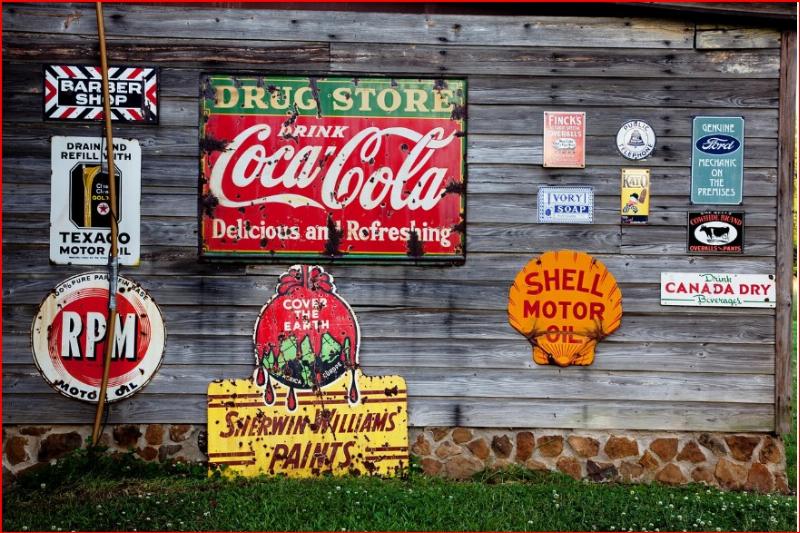


I received such an outpouring of comments to my recent bad T.V. and cable ads article that I thought I’d give this another shot.
Currently, there are so many bad ads I had no problem finding truly dreadful examples.
First, let’s check out an ad campaign that worked, American Eagle’s ads featuring Sydney Sweeney, a popular young Hollywood actress.
Apparently, she not only has good genes, but good jeans. 
When those American Eagle Sydney Has Great Jeans ads broke a couple of weeks ago, three things happened. Immediately, the “progressive left” predictably lost their minds, flooding TikTok and YouTube with screaming video fits, calling Sydney a Nazi while claiming her ads support eugenics. Neither is remotely true. She’s just a naturally beautiful woman who looks fantastic in jeans. Clearly, she wasn’t afraid to tell – or show – the world that she has both great jeans and great genes.
That is a great ad tag line.
T.V. commercials are designed to boost the bottom line. By this criterion, these ads worked like gangbusters. It didn’t hurt that outspoken icons, from Donald Trump to Dr. Phil, praised American Eagle for their ad campaign. Financially, this fashion jean maker literally sold out their blue jeans inventory while their stock – according to Forbes – hit its highest point in six months. Their market cap shot up by $200 million dollars in the first days of the campaign.
That is powerful advertising.
Moving away from never-fail cheesecake ads, there is another new Orange advertiser. Yes, Orange is indeed the new orange. Why this remains so is beyond me. There is no study I’ve seen suggesting that orange is a palate that sells products.
This is the fourth currently running ad campaign, and the second cell phone provider – Boost Mobile – to use orange “as a message” in their ads.
Ted Danson’s ads for Consumer Cellular are saturated in orange. Now they have a less well-produced copy-cat competitor ad, cellular provider Boost Mobile.
This is the most gawdawful annoying ad on cable today.
Because of their visual similarity, the saturated orange in this horrendous ad automatically degrades the impact of all orange ads – especially when the advertisers are direct competitors.
Note to advertisers: DO NOT use your competitor’s color scheme, unless you seek to help them generate more business … at your expense.
One truly tone-deaf ad is the worst of a series of ads by LeafFilter, a product that claims to prevent gutters from becoming clogged with fallen leaves.
Several ads, shot in what looks like a warehouse, feature the president of LeafFilter, Chris Counahan, talking with a woman, Emily Barrett.
She looks and sounds like an original Reddit/YouTube/TikTok “Karen.” Cementing this notion, she’s identified as president of HOA of America.
Consider this.
Residential community HOAs (homeowners' associations) are notorious across the Internet for their abuse of members and their corrupt, power-hungry management.
This makes the use of this referral source, HOA of America – led by a classic “Karen” – is a bizarre form of self-sabotage.
Is LeafFilter tone-deaf, or just blind to the risk of affiliating with an image that invites no praise and much condemnation?
Who is the HOA of America – the firm LeafFilter is using as a credential?
A Google search confused them with HOAIC, Home Owners of America Insurance Company.
HOA of America appears to be a central, unifying body for many, if not most, local HOAs across America. Considering those organizations’ almost universally bad public image, featuring their CEO hardly seems an effective way of selling products.
This highlights the larger problem of “celebrity” or third-party endorsements.
Just consider how the once-famous golfer, Tiger Woods, had a whole raft of products.
This was profitable for Tiger and his clients, right up until his marriage very publicly fell apart because of his serial infidelity. Not only was Woods, Inc., devastated, so were those companies and charities he endorsed.
Failing to learn from Tiger Woods’ example, LeafFilter sought out an “unknown” someone with an already negative public perception problem to endorse their product.
Ouch.
From the very first appearance of these LeafFilter ads, they evoked a know-it-all buttinsky stereotype of a Karen pitching a product that is otherwise hardly compelling.
From the very foundation of commercial television in America, T.V. ads have “paid the freight” for local, network and cable programs, using two tactics, either plain cost-vs.-benefit analyses, or crude-to-remarkable 30- or 60-second mini entertainment programs.
One of the worst of the lot among current “entertainment” T.V./cable ads are the series of Charmin toilet paper ads, featuring three animated bears – a call-out to the “Goldilocks and the Three Bears.”
However, there are two puzzles surrounding these ads.
Sometimes, the bears are brown. Other times, they are either bright blue or equally bright red, yet they seem to be the same bears.
Confusing, but not critically so. Hey, they’re cartoon bears.
However, there’s a recurring theme in these commercials: One of the three bears, usually baby bear, but sometimes papa bear, has toilet paper “chunks” stuck on his butt, dribbling onto the floor.
Because the bears are literally showing their nasty butts, these ads are a real turn-off to anybody who doesn’t love “potty humor.”
Yet this is not some marginal company’s desperate advertising effort, but an ongoing series of ads dating back to 1999.
Charmin was market-leader before these ads first ran – it remains among the top five even after twenty-five years of highlighting dirty a** bears.
Their continued success makes me wonder how ad consumers really think. Assuming they do.
Finally, there are a dazzling collection of ads for various clothes-washing detergents or additive products, such as Gain, all suggesting that Millennials and GenZ’ers proudly sniff any good-smelling clothes, plunging themselves into a state of orgasmic ecstasy, whether those clothes just out of the dryer or hanging on the shoulders of a sweaty-looking man standing in a too-crowded public transit bus.
However, a new ad for Downey brand Shaking Unstoppables goes above and beyond. It’s a clothes-washing supplement that seems to guarantee, no matter how sweaty you were yesterday, you can wear that shirt again today and still attract Biden-like strangers coming to take a sniff.
What’s remarkable about these ads is not the orgasmic experience customers receive while sniffing Downey-infused clothes, but their unstoppable fits of epileptic-like shoulder shaking once they put on the shirts. You literally must see these ads, as words can’t describe how bizarre this looks.
Oddly, while it seems this particular product should appeal to single-again guys in those age groups, the ads clearly target married women eager to wear swell-smelling clothes to work, even though the product gives them epileptic fits.
Is there anyone out there so eager to look spastic – in the clinical sense of that word – that they’ll buy Downey’s new product? Lord above, I hope not.
American Thinker is supported by readers just like you – and me – who subscribe to AT, helping us financially ensure we can continue to provide the best of conservative news and commentary, every day of the year.
Subscribers receive both an ad-free reading experience and a weekly newsletter every Friday, featuring in-depth articles, each written by one of AT’s editors. It’s remarkable how much wisdom they can squeeze into a weekly newsletter. I subscribe to American Thinker, gladly paying the subscription fee to help support an organization that I – as a regular contributor – have supported with articles and opinions since 2006.
Please, check out the subscription link to see how much you’ll get, and how affordable it can be.
***
Having done his Masters work in Advertising, Ned Barnett has been in the ad business for five decades, winning three prestigious national ADDY awards for the best ads of the year.
When he’s not writing for American Thinker, Ned provides support to authors and wannabe authors – from editing to ghostwriting, from PR promotion to insightful marketing. He’s been doing so since 1982. If you need help being a writer or becoming one, contact Ned at 702-561-1167 or nedbarnett51@gmail.com.
Image: American Eagle ad image // fair use
